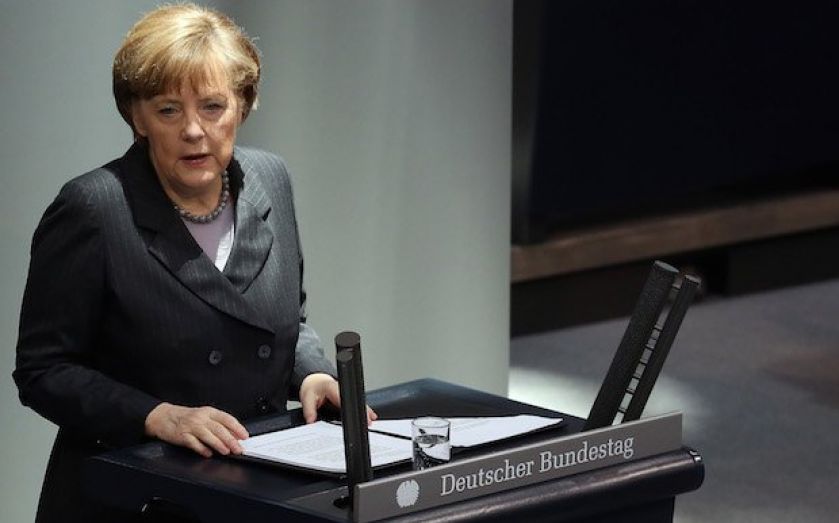Merkel backs Baltic states but rules out combat troops

German Chancellor Angela Merkel has pledged to support the Baltic states against a possible Russian threat but refused to commit to the deployment of ground troops.
Speaking in the Latvian capital Riga, Merkel said she supported "enhanced preparations" to deploy NATO forces to the region in case of an imminent threat.
She reassured the Latvian prime minister Laimdota Straujuma, that NATO's commitment to article five of its constitution, which obliges NATO members to defend each other from aggression, was "not something which just exists on paper, but is also something which must be filled with life".
However, the German Chancellor said the permanent deployment of military forces would be in violation of a 1997 cooperation pledge between NATO and the Russian Federation.
"We won't have a permanent stationing of combat troops but we will boost our participation in other ways .
"We will do what it takes to guarantee that, should Latvia come into difficulties, NATO will be able to help straight away," she added.
In a joint press conference with prime minister Straujuma, Merkel said she hoped to improve the ability of NATO to react to an immediate threat posed to the security of the Baltic states.
This would include ramping up exercises in the Baltic states and upgrading the region's infrastructure. These issues are set to be the topic of intense discussion when NATO meets in Cardiff on 4 September.
Angela Merkel was optimistic that NATO would be able to present a unified position at the end of the conference. Latvia, Estonia and Lithuania are all former Soviet republics, with Russian-speaking minorities. Following Russia's annexation of Crimea, fears have been raised that the Kremlin may try to replicate its success in the Baltic region.
Russia's actions in Ukraine have only deepened these fears, with Straujuma warning that Russia has "fundamentally changed the security environment in Europe".
"Trust has been lost. We all have to adjust ourselves to the new conditions, and we must give a clear response."
On Sunday, NATO's Supreme Allied Commander Europe said the alliance would respond militarily if Russia tries to infiltrate troops into a NATO country. U.S. Air Force Gen. Philip Breedlove said NATO countries in eastern Europe needed to start preparing for a possible threat from "little green men".